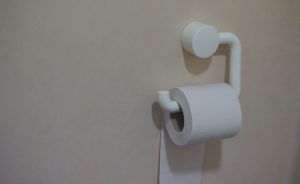 Urinary incontinence is the incidental and involuntary leaking of urine. It is not considered a disease. It is one of the key symptoms of the urinary tract problems.
Urinary incontinence is the incidental and involuntary leaking of urine. It is not considered a disease. It is one of the key symptoms of the urinary tract problems.
Types of Urinary Incontinence
There are many types of urinary incontinence, but following are the main types of urinary incontinence: Stress Incontinence, overflow incontinence and Urge Incontinence.
Symptoms
Symptom of urinary incontinence depends on the type of urinary incontinence you are suffering from. The main clinical feature of the stress incontinence is the dripping of urine when you do forceful activities such as a cough, strain, change posture or laugh. Symptoms of overflow incontinence may include Leakage of urine while sleeping, weak urinary system, a urinary stream that stops and starts when you pee and feeling of urine in the bladder after urinating. Some of the symptoms of the urge incontinence are nocturia, sudden leakage of an enormous amount of urine and sudden and urgent need to urinate.
Exams and Tests
A detailed medical history, physical examination, and urinalysis are helpful in establishing the initial diagnosis and finding the cause and starting treatment
Treatment and Care:-
The treatment of urinary incontinence depends on the type of urinary incontinence and intensity of symptoms. Treatment of a patient with urinary incontinence is usually done in following strategies:
Behavioral Strategies: –
Sometimes a few simple changes in the lifestyle and diet are enough to control the symptoms and manage the patient with stress incontinence.
Medicines:
Medications that treat inflammation, infection or spasms of muscles of the bladder are also very helpful in these patients.
Surgery
Surgery is the treatment of choice when there is obstruction or blockage in urine.
Life Style Changes
Hygiene Tips:-
- =>Use a barrier cream such as cocoa butter or petroleum jelly to protect your skin surface from urine.
If you are suffering from functional urinary incontinence, then you should keep a bedpan in your bedroom.
Dietary Considerations: - =>Weight loss can help a lot so you should work out regularly and eat healthy food.
- =>Constipation is an aggravating factor so diet should be higher in vegetables, fruits and fibers.
- =>People with urge urinary incontinence should stop drinking soft drink and caffeinated beverages.
- =>Alcohol and caffeine also aggravates the diseases and patients should limit the intake of these items.
Natural Remedies:-
Magnesium:-
– Increase the intake of magnesium-rich foods, such as potatoes, bananas, and corn in your diet, as it improves the nerve functions of the muscles of the bladder. It also reduces the spasms of the bladder and helps bladder in emptying completely and efficiently.
Vitamin D:
Vitamin D is also very good in reducing the risk of urinary incontinence. Increase the intake of foods containing such as fortified milk, fish, and eggs.
Kegel exercises can also be helpful in some cases.
Las Vegas urologist, Dr. Lawrence Newman, can help you with your urologic needs.
